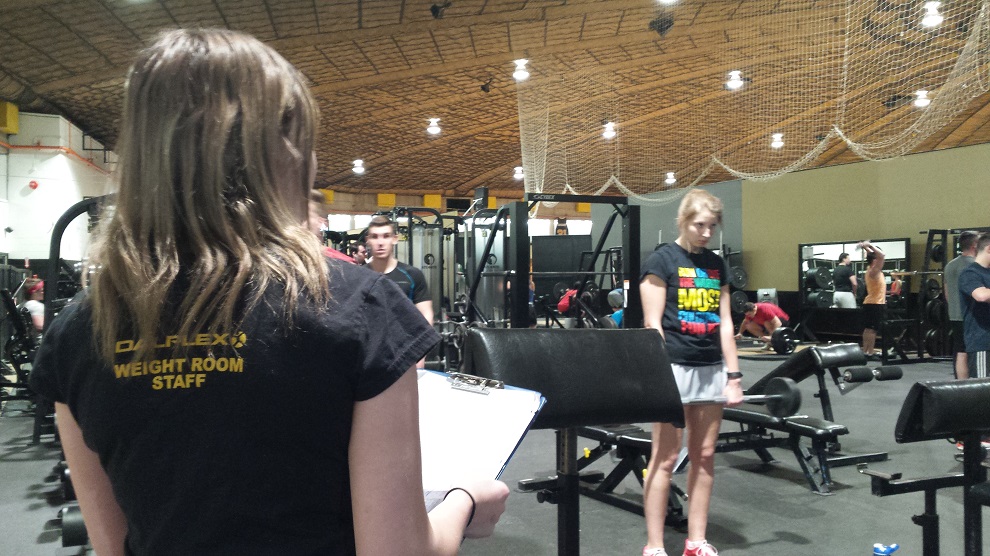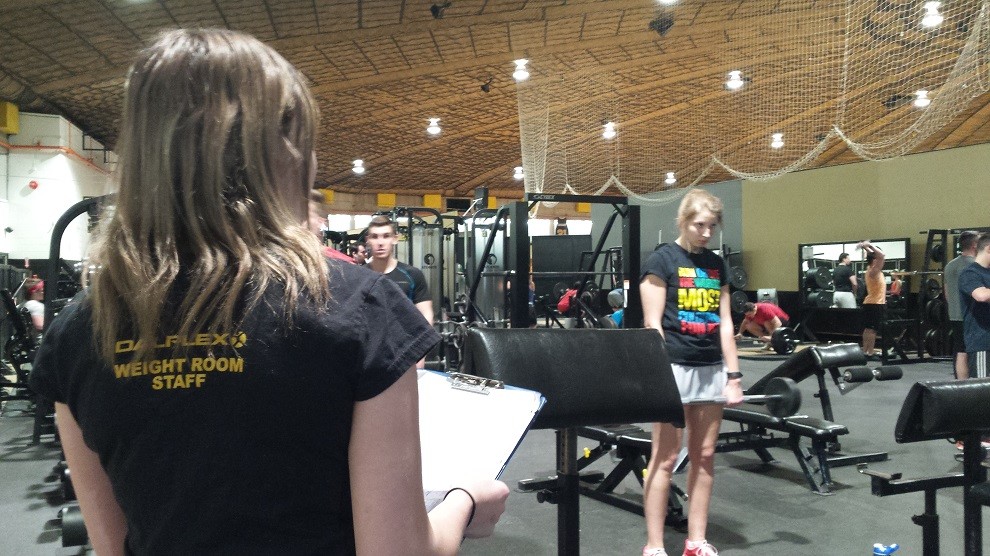Mental Health
Dalhousie targets depression with exercise
A new program will help students with depression become lifelong exercisers

caption
Students combat mild depression through strength and cardio training in Dalhousie's new program.
caption
Students combat mild depression with strength and cardio training in the pilot program.Anne Falconer, the fitness co-ordinator at the Dalplex, hopes that Dalhousie’s new pilot program will create a lasting change in students suffering from mild depression.
The active health program is a collaboration between Dalplex and Dalhousie Counselling Services. It pairs full-time Dalhousie students with student trainers who work together three times a week for up to 10 weeks.
The program officially started in January and will continue throughout this semester.
Falconer said the goal of the free program is to see if participants “feel better without counselling or drugs – just with exercise.”
There are currently five trainers and eight participants in the program.
The trainers take the participants through an exercise routine that consists of 30 minutes of cardio training and 30 minutes of basic strength training.
The student participants are assessed by Student Health and Counselling Services at the beginning and end of the program, in order to see if there has been an improvement in their mental health.
Lianne Burrell, one of the student trainers, hopes that this program will have a long-term positive effect on participants.
“We’re taking individuals who were previously considered … sedentary individuals. And so if you take any kind of sedentary individual and then add exercise three times a week into their lives, they’re going to see an improvement,” said Burrell.
“In the end, once this program is over, we don’t want them to stop exercising. We want them to implement this healthy lifestyle and make it a habit.”
The fate of the active health program will be determined by the university and whether the funding continues.
“We’re hoping the project continues,” said Falconer.
“But, I’d say that the real goal is to help at least eight students become lifelong exercisers who have some coping skills for a very common problem.”

